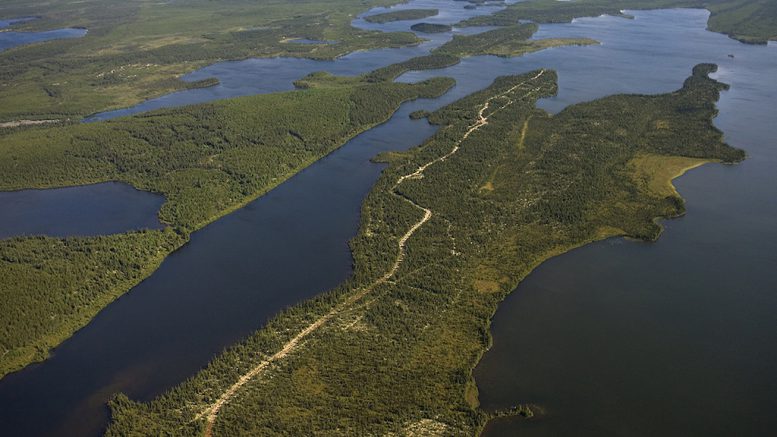Denison Mines (TSX: DML; NYSE: DNN) says it has completed the inaugural in-situ recovery (ISR) field test program at its Midwest joint venture project in northern Saskatchewan and plans to pursue a preliminary economic assessment (PEA) as the site could be suited for ISR mining.
The program involved drilling 10 small-diameter boreholes within the Main zone to evaluate site-specific conditions as they related to ISR. A series of tests were performed on each hole to create a database of geological, hydrogeological, geotechnical, and metallurgical data. The work also validated the key assumptions in the previously completed internal study to evaluate the potential for ISR.
“Further evaluation is warranted and, building on the concept study and incorporating the data acquired in the test program, we are proceeding with a preliminary economic assessment for ISR mining,” Denison president and CEO David Cates said. “Midwest represents Denison’s third project evaluated for potential ISR mining in the Athabasca Basin.”
Field test momentum
The field testing at Midwest, about 700 km northeast of Saskatoon, comes seven months after the company announced that other field tests at the Phoenix deposit of Denison’s flagship Wheeler River project showed commercial ISR methods could be viable. Phoenix and Gryphon are the high-grade deposits that form Wheeler River — northeast of Midwest — the largest undeveloped uranium project in the eastern region of the Athabasca Basin.
The news about the Phoenix test came just over one year after Denison said initial ISR testing that recovered uranium-bearing solution at targeted rates and grades was “history in the making.” The ISR leaching method separates uranium from ore underground and pumps the solution to the surface for extraction. It’s generally less expensive than traditional hard rock mining, doesn’t require the digging of large pits and leaves fewer tailings.
A PEA for Midwest would add to Denison’s feasibility study for Phoenix and an update to its 2018 pre-feasibility study for Gryphon, both completed almost one year ago.
Canaccord Genuity analyst Katie Lachapelle wrote in a note on Monday that the field test news is positive because it provides validation for potential use of ISR at Midwest.
“This is now the third project in Denison’s portfolio that has been evaluated for the potential use of ISR,” she said, citing Phoenix and field testing last November at the Tthe Heldeth Túé uranium deposit, part of Denison’s Waterbury project, just north of Midwest.
Denison is the 74.8% owner and operator of the Midwest JV, which is located 25 km by existing roads from the McClean Lake mill. The mill operates as a joint venture of Denison (22.5%) and Orano Canada (77.5%). The mill is currently processing uranium ore from the Cigar Lake mine, and the plant has excess capacity.
Denison bought a portion of the Midwest project in 1987. It and Orano received environmental approval in 2012 to operate an open pit mine at the site. With a change to ISR mining, future development at Midwest will be subject to additional review and approval processes.
Denison shares were down 1.8% to $3.23 apiece on Monday afternoon, valuing the company at $2.8 billion. Its shares traded in a 52-week range of $1.53 and $3.37.


Be the first to comment on "Denison plans PEA for Midwest uranium project after in-situ recovery field tests"